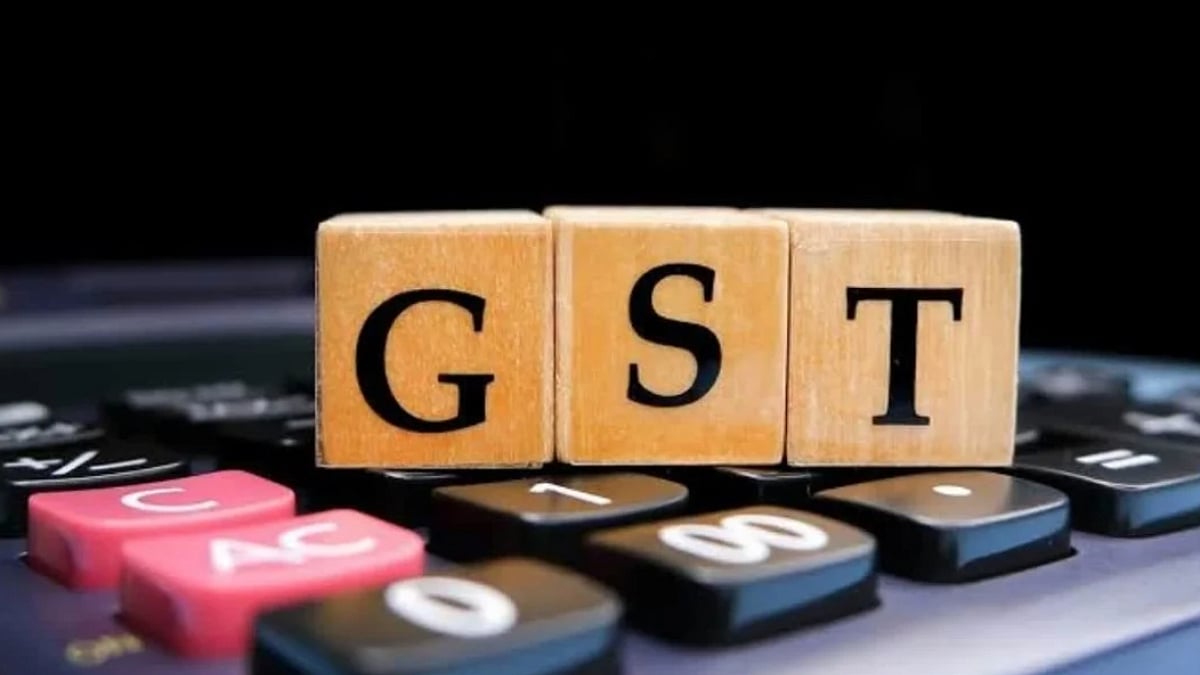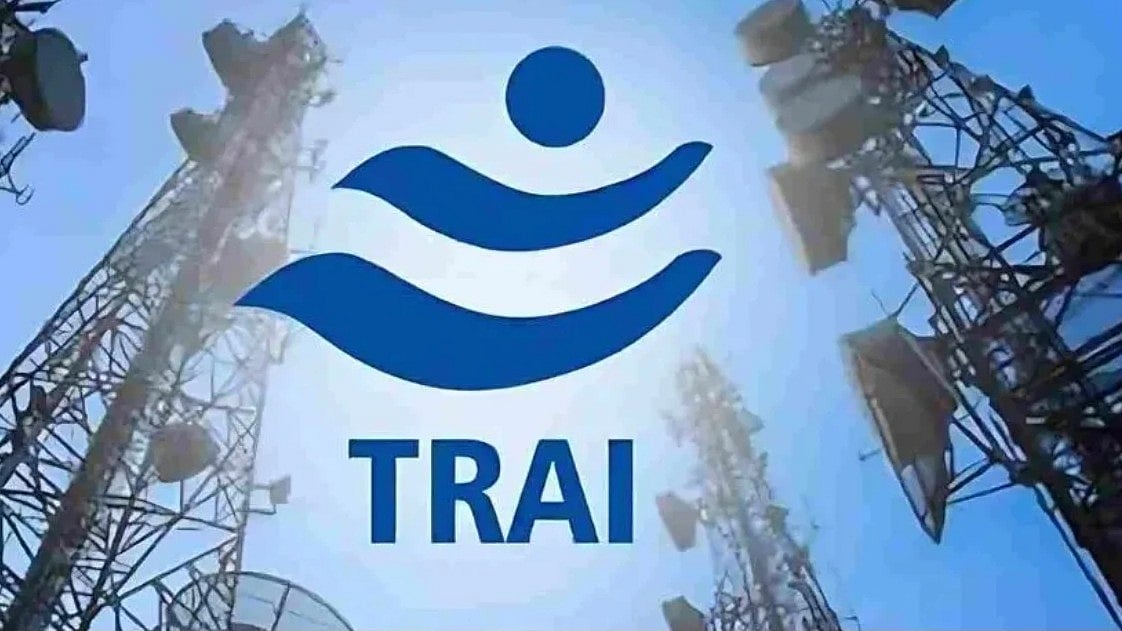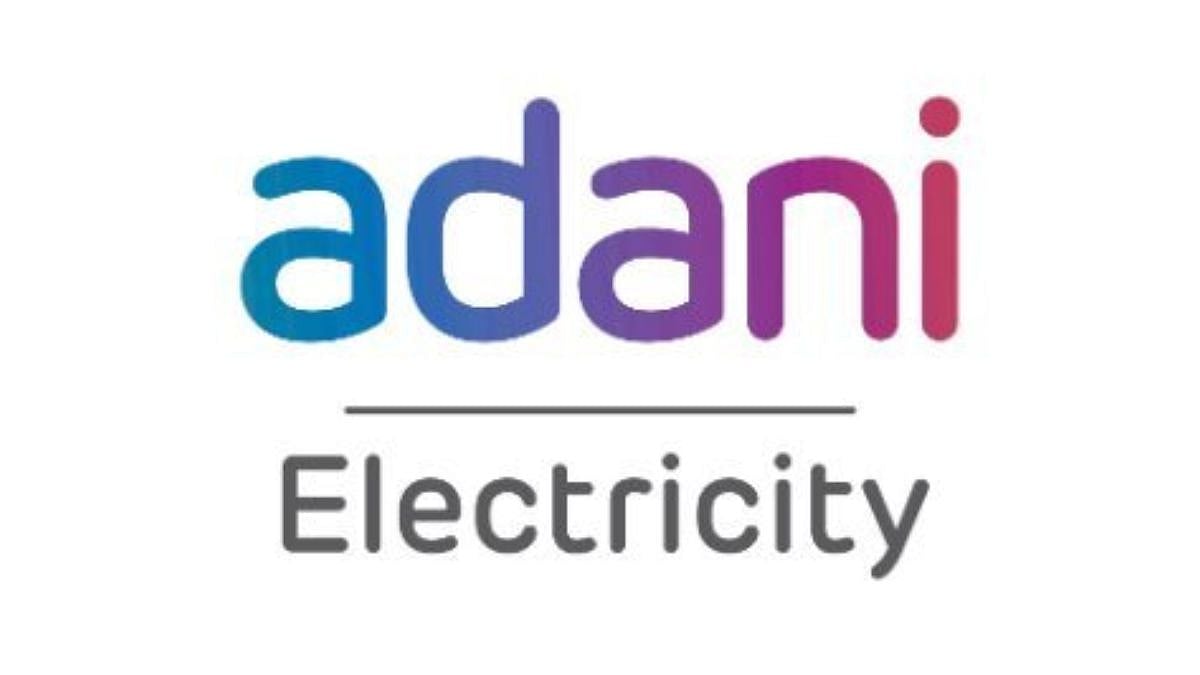Healthcare has been the focus of the government in the last Budget. However, the government allocated only 1.8 percent of the GDP to health in last year’s Budget. Players in the healthcare sector seek an increase in the allocation. Among the slew of asks in their wishlist are Private Public Partnership PPP model for better infrastructure, research and innovation to make quality healthcare affordable and accessible for the masses. Targeted incentives and tax holidays should be given to the healthcare and allied sectors for making India as a leading destination, they said.
Here's the sector's wishes from the finance minister in Budget 2022:
Akshay Daftary, Director, SIRO Clinpharm-Clinical Research Organisation
We look forward to an increase in the allocation of Budget towards healthcare sector, along with continued support and incentivization in the drug development space.
Aman Puri, Founder, Steadfast Nutrition
Budget 2022 should allocate more funds to healthcare in order to strengthen primary, secondary as well as tertiary healthcare, public health delivery, and research. Notwithstanding the pandemic, the government allocated only 1.8 percent of the GDP to health in last year’s Budget. The National Health Policy 2017 had recommended this be increased to 2.5 to 3 percent of the GDP. Given the COVID-19 situation, the allocation should be up to 5 percent of the GDP in this year's Budget. There should also be increased budgetary allocation to the pharmaceuticals industry to remove its current dependence on China and other countries for imports of Active Pharmaceutical Ingredients.
Amit Sharma, Founder and CEO, eExpedise Healthcare
This year's Budget is crucial and we expect concrete policies, framework and investments for affordable and accessible healthcare from the government. One way the government can do this is through reduced GST on healthcare products and services by keeping life-saving drugs at the lowest GST bracket and having “zero-rating” of GST for health care services. The government should work on the Private Public Partnership (PPP) model for better infrastructure, research and innovation to make quality healthcare affordable and accessible for the masses. We also are looking forward to more investment and planning on the National Digital Health Mission (NDHM). Targeted incentives and tax holidays should be given to the healthcare and allied sectors for making India as a leading destination.
Amit Srivastava, Chief Catalyst, Nutrify Today
There is a need to create a department of nutraceuticals and dietary supplements along with HSN codes to have a systematic classification of goods. The government needs to provide aid of Rs 100 crore incubation fund. This will provide growth impetus to the sector. Formulation of Production Linked Incentive Scheme is something that the sector is desperately looking out for in order to become more robust and contribute extensively towards the development of the country's economy. The utmost important part that the government can do to help the sector flourish is by creating a department for the Nutra sector under the ministry of health and family welfare.
Anil Khandelwal, Founder – Yogic Secrets Healthcare
It is suggested to consider lowering the GST rate from 18 percent to 5 percent on nutraceutical products made from patented ingredients extracted from plant, herbs or spices and supported by human clinical studies. This should be applicable for imported products made from patented ingredients and supported by human clinical studies. This will help not only make the end price affordable to consumers but also help promote our ancient wisdom, practises running for thousands of years and more importantly with zero side effects.
Anish Bafna, CEO & MD, Healthium Medtech
Expectation is high in terms of research and development push to the Medtech and Devices sector in terms of Incentivisation and tax holidays for a period of 10 years to be provided on the spending on research. There is also a need to increase the export incentives under the newly introduced Remission of Duties and Taxes on Export Products Scheme (RoDTEP), rationalisation of Custom Duty, roll back Health Cess on Imports of Medtech Products and amendment of SEZ Act to allow SEZ medtech manufacturers to sell their produce in the domestic market. Facilitating of single-window clearances for government approvals for the local companies, rebates on costs related to product registrations in foreign countries and keeping exported products outside the purview of price control will together contribute to a more significant push for exports.
Anurag Khosla, CEO, vHealth by Aetna
In Budget 2022, I expect the Government to continue focusing on building a robust health infrastructure that promotes easy access to quality healthcare to the remotest corners of the country. I hope this Budget encourages innovation and research in phygital healthcare delivery that creates a harmonious ecosystem between physical and digital healthcare services. Encouraging investment in healthtech & telehealth can greatly improve accessibility, quality and cost of healthcare in India. Further complemented by fast tracking NDHM & related schemes, can make India the next global healthcare hub.
Darpan Saini, CEO, Phyt.health
Medical expenses have increased over the past two years with COVID taking center stage. A special focus on making health insurance affordable by reducing GST on premiums from 18 percent to 5 percent is a viable option. The government should make health insurance applicable for telehealth services such as doctor consultations or online physiotherapy to help patients recover from the comfort of their home. This is crucial for patients who can't visit a doctor due to Covid restrictions. Moreover, the FM could also look to increase the limit of deduction under Section 80D from Rs. 50 lakh to 1 lakh. This could help the common man combat the rising healthcare costs.
Ajay Khanna, Country Head, Herbalife Nutrition India
We expect the dietary suppleme Hebants market market to grow at a CAGR of around 18 percent during 2021-2026. We expect the forthcoming Budget to strengthen the importance and progress of the Indian dietary supplements market so that the country can lead the world in this space in coming years.
Dr Alok Khullar, CEO, Gleneagles Global Health City, Chennai
We urge the government to give adequate importance to the healthcare sector in the upcoming Union Budget 2022 by considering: Special schemes for formal training of doctors and nurses to enhance skills and bandwidth to offer care to a larger population which will help strengthen the quality of healthcare resources in the longer run; Building capacity for Intensive Care by enhancing skills of nurses and by providing better equipment and infrastructure; Significance to be given to appropriate screening for non-communicable diseases to ensure timely diagnosis and treatment which will help in reduction of hospitalisation in the last minute; upgrading infrastructure at Primary Health Care level for early Outpatient treatment thus reducing Hospitalization time and cost.
Dr Arbinder Singal, CEO & Co-Founder, Fitterfly
The healthcare sector can be unburdened tremendously by allocating funds and introducing policies that can address the shortage of skilled healthcare manpower in the country, which can largely be addressed by Digital Therapeutics. In these uncertain times, patients with comorbidities like diabetes have to rely on Digital Therapeutics (DtX) to manage and control their health conditions. To decrease the financial burden of Individual taxpayers, the government can provide some relief by increasing the allocation of funds to the healthcare sector, especially clinically-validated digital therapeutic solutions. The government should consider devising policies for reimbursement for digital therapeutics therapies and provide options such as tax exemptions or breaks on DTx.
Dr Arjun Kalyanpur, Chief Radiologist & CEO, Teleradiology Solutions
An accurate diagnosis is essential for good patient care. Teleradiology is a tech enabled health care service. We would like to see growth of this sector in India as it can revolutionise early high-quality diagnostics. A nationwide teleradiology solution and service for low-income patients funded by the government could enable this. Made in India low-cost diagnostic scanners need to be encouraged with state level med tech parks with tax breaks and set up costs covered.
Dr. Anish Desai MD., Founder & CEO, IntelliMed Healthcare Solutions
A 137 percent increase in healthcare expenditure was announced in Budget 2021. India spent around 1.8 percent of its GDP on healthcare. Increasing the healthcare expenditure above 2.5 percent of GDP and further going up to 4 percent, is one of the primary expectations from the Union Budget 2022. Widening the coverage and regulating the private insurance sector will be important to address few of the issues. Making finance available at low interest rates for hospitals and diagnostic chains & making it one of the priority infrastructure in the sector is critical. GST and import duties need to be minimal on life saving drugs and devices.
Dr Kshitiz Murdia, CEO & Co-Founder, Indira IVF
The government should bring IVF treatments under health insurance parameters. Financial support through insurance will bring much relief to such couples and it will also encourage more penetration of such treatments in small cities/towns. Including fertility treatments in health insurance plans will minimise the financial risks of anyone seeking help. It must also be noted that a normal pregnancy is duly covered under insurance, so we recommend an assisted process or treatment for pregnancy, must also be financially secured. If the insurance company pays for infertility treatments, there will be more standardisation and transparency in the system.
Dr. C J Vetrievel - Founder, Chairman & Managing Director, Be Well Hospitals, Chennai
With the country battling the third wave of COVID-19, there is a huge gap in the healthcare system that needs to be addressed by various healthcare service providers to form a network. An effective public-private partnership (PPP) model should be proposed to ensure cost efficient operations are conducted. Additionally, the capital expenditure incurred on eligible healthcare projects in semi-urban and rural areas should be reduced for ventures with minimum 50 beds. Considering the shortage of medical manpower in the country, a weighted deduction of expenses incurred on skill development in the healthcare sector must be offered.
Dr Lalitha Reddy, Founder - ForMen
Though it appeared that there was a significant allocation of funds and increase in budget to healthcare sector in the 2021 budget, when actually broken down and after inflation adjustment, there was no significant change as compared to previous year, for the actual ‘Health care’. I sincerely hope that the 2022 budget will give importance to the ‘Health Care’ segment of the sector and allocate adequate inflation adjusted budgets, necessary for both the rural and urban areas. There was a suggestion by CII that investment by public on health should be increased to at least 2.5 to 3 percent of the Gross Domestic Product by 2025, from the current 1.29 percent.
Dr HR Nagendra, President of (VYASA) and Chancellor of (S-VYASA)
It is now important and expected that the government will promote new drug discoveries in systems of AYUSH extensively. To promote cost-effective and evidence-based yoga Therapy, Naturopathy and other Non-Pharmacological interventions will get a boost. For this purpose, we hope the government will allot substantially more funding in the new Budget for research to expedite and facilitate high end research. As the government is already spending and investing a lot in the health sector, it is necessary to allot substantially more funds for the AYUSH Sector.The Government should allot dedicated funds for top Institutions, research scholars and young doctors for supporting and encouraging them to work hard and discover more vaccines, Pharma drugs and effective non pharma formulations in AYUSH.
Dr S. Narayani, Zonal Director, Fortis Hospitals, Mumbai
Healthcare was one of the first pillars of Budget allocation last year and should continue to be an important aspect in this year’s Union Budget as well. Since the pandemic hit us, we have seen the need for and importance of an even stronger healthcare sector in India. We need to pave the way for more Public-Private-Partnerships (PPP). Secondly, there has been a growing concern for healthcare infrastructure in India which can be addressed with increased budgets in Research & Development, medical equipment procurement, development of more hospitals, and improving the overall infrastructure. In India there is a lack of a skilled healthcare workforce. A dedicated Budget should be allocated to address the need to create sufficient manpower and for skill development of paramedical staff, nurses, etc.
Jayant Khosla, MD & Group Head, VLCC Health Care
Resource allocations for the Healthcare sector in the annual Union budget have been overwhelmingly skewed towards curative healthcare. Investment in preventive healthcare will help increase longevity and overall productivity of people. Preventive healthcare check-ups could be made mandatory and diseases could be treated with subsidized medicines and access to better health enhancement services such as wellness clinics, dietary consultations and sports activities, etc. The spend on preventive healthcare activities should be considered for tax exemption up to a limit in addition to mediclaim insurance which is covered for curative measures. Also like curative service providers are provided exemptions from GST, we could also include this to preventive healthcare services providers like wellness clinics and obesity management services in order to make it more accessible.
Dr. H Sudarshan Ballal, Chairman, Manipal Hospitals
Increased allocation for healthcare, since we still have a lot of ground to cover in our expenditure on healthcare. Spend on strengthening our primary healthcare system which is the backbone of healthcare in India, public healthcare, preventive healthcare in addition to nutrition in children, and aggressive vaccination campaigns to include Covid-19 vaccination for all. We also need to strengthen the public healthcare system by upgrading the infrastructure and personnel at government hospitals
Dr Vispi Jokhi, CEO, Masina Hospital
The expectations from the union budget for the healthcare sector relating to an increase from 1.8 % in the outlay of the budget to at least 2.5 percent of the GDP this year. This has become an oft-repeated demand. In view of the state of health care following the devastating effect of the COVID pandemic some concessions to the industry are in order. These relate to relaxation of norms for treating indigent and weaker section patients free of cost and at heavily subsidized cost. The 2 percent to be set aside for this purpose should be reduced. The cost of compliance relating to fire safety norms and other infrastructure norms need to be reduced by providing special pricing for equipment relating to the same for hospitals.
Dr Vivek Talaulikar, CEO, Global Hospital in Parel, Mumbai
There is an urgency to come up with long-term strategies and roadmaps to put in place a system to deal with the future pandemics. The pandemic has put spotlight on the state of PHCs in rural areas and highlighted their significance in early detection of cases and providing quick help before health conditions become more severe. We hope that the government will continue spending on the healthcare sector in the upcoming budget, as India is yet to fully vaccinate its population and Covid-19 is far from over with new variants being reported across the world. In order to overcome the twin challenge of rise in non-communicable and infectious diseases, it is imperative that the public spending on healthcare is increased to 4.5 percent of the Gross Domestic Product (GDP) over the next 7-10 years.
Jesal Doshi, Deputy CEO, B Medical Systems
One of the expectations is for increased allocation in the healthcare sector - across the entire infrastructure, specifically for immunization. COVID-19 is far from over and it is vital that the country is well prepared to fight the pandemic and any future pandemics, and a reliable medical cold chain is critical for the success of any immunization program. We believe that creating a sub-industry for medical cold chain and separating it from commercial refrigeration, along with reduced GST rates could further boost the sector. The government should reduce import duties on critical components that are essential for manufacturing reliable medical cold chain units.
Karan Talreja, Founder, RESET Tech
There is a demand for a separate Budget allocation for Indian startups ventured into deep technologies for augmentation of holistic solutions to lifestyle diseases. Expectation from the industry is the process of research and development to continue extensively which demands proper financial support that needs to be fulfilled by the government. Industry has received great support from the government as well to support the startup ecosystem.
KR Raghunath, Senior Chairman, Jindal Naturecure Institute
The need of the hour to spend more on creating awareness about why preventive healthcare is important, more so with the ongoing COVID-19 pandemic. Food as a medicine should be promoted as much as possible. The benefits of making positive changes in the diet should be advertised. This can not be achieved without a nationwide programme of educating the masses. During the pandemic, PM Modi has given the much-needed push to the AYUSH sector as he encouraged the world-class R&D enablement and manufacturing capabilities of India. An allocation only for strengthening communicable disease surveillance is a sub-optimal solution. The budget for up-skilling of the youth to become Preventive Health Coaches is also required since this will address the problem of unemployment and build on PM Modi’s Atmanirbhar mission.
Raktim Chattopadhyay, Founder & CEO, Esperer Nutrition
It’s imperative we want the government to emphasize social safety. The latest Covid surge appears to be the biggest risk factor for the economy at the moment. The common man expects deduction on medical expenses, tax exemption on annuity income, and a hike in basic exemption cap.
Runam Mehta, CEO, HealthCube, healthtech company
We hope the government will make sufficient budgetary allocations towards development of new tools and technology and manufacturing of cutting-edge portable diagnostic, remote monitoring and telemedicine equipment. There is also a need for government-private collaboration in development and usage of advanced software-based solutions in rural healthcare delivery and preventive diagnostic services. Investments in the arena should be simplified, and there is an urgent need to incentivize and provide infrastructural support to companies developing the right solutions. Reduction of import duty on critical components required by the device manufacturers is another urgent area of attention.
R Venkataramanan, Founder and CEO, Karkinos Healthcare
We expect the Budget to pave way for innovative healthtech startups to drive quality diagnostics and treatment to a larger number of patients, which is the need of the hour in India. The growth of the last-mile healthcare services will also boost in employment generation and can advance India as a healthcare service provider to the world.
Mayank Banerjee, Co-founder and CEO, Even Healthcare
We have high hopes from the National Digital Health Mission and how it would improve clinical outcomes when a patient’s entire history is accessible digitally without relying on the patient’s own paperwork and memory. Around 58.7% of healthcare services are still paid out of pocket in India. In that regard, it would be interesting to see how the government brings unique healthcare financing models to cover more people than before.
Mithun Majumdar, Co-Founder, 750AD Healthcare Pvt. Ltd.
The Budget reports suggest that there will be an expenditure of Rs. 2,34,846 crore for health care for FY22. With omnicorn effecting almost every state, budget allocation will help in fighting this situation well in the country. However, the Budget must also focus on Data privacy policies and infrastructure development with the healthcare system working digitally now. With such massive data with healthcare organisations, it is important that data regulatory bodies are developed and privacy of every citizens data is secured.
Neerja Birla, Founder and Chairperson, Aditya Birla Education Trust (Mpower-Indian Mental Healthcare-initiative of ABET)
The Union Budget of 2021-22, allocated over 71,000 crores to the Ministry of Health and Family Welfare. Mental healthcare, however, received only 597 crores. Out of this, 500 crores were set aside for National Institute of Mental Health and Sciences (NIMHANS) and 57 crores for the mental health institute in Tezpur, Assam, leaving a mere 40 crores for the National Mental Health Program that caters to the needs of 14 percent of India’s population that suffers from mental health issues.
The COVID-19 pandemic has exacerbated India’s mental health crisis by unimaginable proportions. The Union Budget 2022-23 needs to put focus not only on India’s overall healthcare but also categorically on India’s mental healthcare. A substantial budgetary allocation can pave the way for infrastructure to be rapidly developed and comprehensive mental healthcare made accessible everywhere, especially in the rural areas, so that all those who need help can get it in timely manner.
Nilesh Aggarwal, CEO, IJCP Group, Founder-Medtalks, eMedinexus
It is absolutely urgent to expand high-quality healthcare coverage to every nook and corner of the country. We hope the government will focus on digital infrastructure further as telemedicine and online doctor consultations are the fastest, most reliable, and accessible mode of primary healthcare today. By allocating an adequate budget for building digital infrastructure in the existing primary healthcare facilities, we can ensure better connectivity and coverage. By integrating telemedicine and remote health monitoring services into the PHCs, it is possible to significantly reduce the demand-supply shortage in healthcare. There is also a need to encourage private sector platforms and service providers to operate in this vertical by offering financial support and conducive legal framework under National Digital Health Mission. There should also be a strong focus on skill development in the rural healthcare sector. The Budget is the ideal opportunity to start this healthcare transformation.
Praveen Chirania, Founder, Muscle and Strength India, retailers of fitness supplements & nutritional products
To give impetus to the overall industry, we hope that the government will rationalise GST on healthcare supplements from 18 percent to 5 percent in Budget 2022. This would help in making the products affordable and accessible for all and help boost the healthcare agenda of the government. From the consumer perspective, we also expect an increase in the income tax limit as it will enhance savings and people's spending capacity, which is critical for improving consumer sentiment. The government should focus more on bringing relief for SME's, MSME's, and entrepreneurial business models.
Priyadarshi Mohapatra, Founder, CureBay-healthcare start-up
We need to raise the public health spending to 2.5-3.5 percent of the GDP to keep supporting the healthcare revolution. We would also like to request the government to create REITs on healthcare and introduce medical innovation fund enabling companies with capital to promote digital healthcare infrastructure. Setting up strong digital healthcare platforms will help rural India get better and quick assistance in their medical requirements. We also expect the government to announce reforms around incentivization of private investment in healthcare infrastructure, health insurance coverage, skilling the existing healthcare workforce, and rationalizing GST on healthcare offerings to further boost the growth of the sector.
Poornachandra Tejasvi, Senior Director, Emerging Markets India, Informa Pharma Intelligence
Higher public spending on healthcare is critical to reduce out-of-pocket healthcare expenditures; healthcare allocation as a percentage of GDP needs to be bolstered sharply. The previous Budget referred to plans for critical initiatives under the Aatma Nirbhar Swasth Bharat Yojana including setting up mobile hospitals, a national institution for "One Health", nine Bio-Safety Level III laboratories and four regional National Institutes for Virology. The pandemic has clearly showed these efforts/areas need further acceleration. In addition, if India wants to emerge as an innovation hub moving beyond its prowess in the generics space, it needs to build a vibrant ecosystem. Budgetary impetus to develop the innovation ecosystem, support for industry’s R&D efforts whether by way of tax breaks, further support to the National Research Foundation, other incentives to life science start-ups in cutting edge areas such as cell and gene therapy are all areas that could do with more attention.
Satish Kannan, Co-founder & CEO, MediBuddy-digital healthcare platform
The Budget should focus on strengthening the medical infrastructure uniformly. It should allocate some funds on developing the telemedicine industry to strategically bridge the disparity and to ensure that accessibility of quality healthcare services increases. Persistent problems that have been a hiccup for several years in the industry could be solved with the help of telemedicine, which holds the potential to solve them with ease. There should also be an emphasis on research and development in various medical fields to strengthen the current standing. Overall, we are expecting to see a rise in fund allocation of 2.5 percent to 3 percent of the GDP with regards to the healthcare sector.
Sanjay Vinayak, Founder and CEO, Connect and Heal, an integrated health-tech company
We hope the Government will take some key fiscal steps, beginning with simplification of GST conditions for all healthcare providers. Any organization delivering, facilitating, or coordinating healthcare services should be provided exemption from GST even if they are not clinical establishments themselves. Streamlining of these issues is critical for modern healthcare companies. Apart from this, the primary healthcare sector continues to suffer from financial challenges. There is a need to qualify primary healthcare credit as priority sector lending for Banks. Another important area to focus is lower tax regime for the healthcare sector to encourage capital inflow.
Shaina Ganapathy, Head of Community Outreach, Embassy Group
At Embassy Group, we aim at creating lifelong resilience to illness and disease with end-to-end healthcare interventions for Government School students and in strengthening the existing healthcare infrastructure of our nation. We’ll see long-term growth in this crucial sector with the Government focusing on comprehensively building an ecosystem where health services are accessible for everyone. We expect Budget 2022 will continue to focus on transformational reforms to improve women and child welfare in the country.
Shilpa Khanna Thakkar, CEO, Chicnutrix - a women's beauty, wellness and nutrition D2C brand.
With health and wellness taking centre stage, there should be a relaxation of taxes on essential wellness products. Encouragement to use wellness and nutrition products will boost the demand which is another factor leading to the growth of start-ups.
Shweta Agnihotri, COO, Cartula Health India
'The upcoming Budget will be driven keeping in mind the pandemic situation. The government should allocate funds on resource development to monitor the present health status of the population and deliver accurate healthcare services digitally. I also look forward to this year's budget creating a positive change for the rural population in terms of accessibility and affordability to primary healthcare and opening the gates for easy-to-understand and hassle-free technologies that can penetrate deep in the country reaching the last mile and making healthcare available for all.
Sigal Atzmon, Founder and CEO, Medix Global
The Budget must continue to prioritize the healthcare sector. While the efforts in deploying technology for healthcare have been continuous and widespread, the benefits have often been localized and fragmented. The government’s National Digital Health Mission initiative has the potential to redefine India’s future of healthcare eco-system and adequate investments must be allocated for making it more efficient and a success. We must foster innovation and collaboration between the different stakeholders in the industry to ensure that access to healthcare becomes truly a basic social right and not a privilege.
Srikanth Kandikonda, CFO, ManipalCigna Health Insurance
Access to health insurance can help more people become part of the health care system and get quality treatment. Thus, we are hopeful in the upcoming Union budget 2022-23 the government looks at considering 5 percent GST tax slab on health insurance premium along with commodities such as food items to make it more affordable for the people living in the middle-income group to get access to quality healthcare care they need. As people age, many elders may need to cope with some or the other health conditions and would need protection against any untoward hospitalization expenses on account of large number of diseases including critical illnesses. Here’s where, GST rate cut from 18 percent to 5 percent on the health insurance premiums will be a huge respite especially for senior citizens who are struggling to meet the rising healthcare costs. At present, on most insurance products the GST is 18 percent which thrusts the premium to 118 percent for the end-user. The abolition or at least a sizeable reduction in the GST on all personal lines of products – from the existing 18 percent to 5 percent will encourage more people to buy health insurance.
Tony Jose - CEO - Clevergene Biocorp
One of the key areas that the government has looked to subsidise the cost of healthcare is to have 0 percent GST for clinical diagnostics and healthcare services. However, the lab reagents and other consumables that are used for providing these services are not exempt from GST and hence this cost is borne by the patient. By exempting these consumables from GST, the benefit can be transferred to the consumer resulting in a reduction in cost to the patient. Similarly, from a research standpoint the government should consider an exemption of GST on consumables and services so that public-funded and private research organisations will have more usable funds for doing research, thereby increasing the R&D output and innovations from India.
Vijayraghavan Venugopal, Co-Founder, Fast&Up
The funds issued by the government in last year’s Union Budget saw increased spending on healthcare by 137 percent with allocation to the healthcare sector at Rs 2.23 lakh crore through the PM Atmanirbhar Swasth Bharat Yojana. This year too, we expect a substantial increase in this percentage for the healthcare sector as this will have an overall impact on the economy. We look forward to reduced GST on homegrown healthcare products and companies by keeping a low GST bracket on immunity-boosting products. There should be economic incentives in the form of endowment funds and providing tax relief. Overall, we hope that the spending on the healthcare sector go up to more than 2.5 percent-3 percent of the GDP.
Vikram Thaploo, CEO of Apollo Telehealth
The health sector is expecting more specific allotments in this year’s budget to mitigate COVID-19 and help in the growth of the telemedicine sector. Increased allocation for promotion of telemedicine, home-based healthcare and national digital health mission implementation will help in building a strong healthcare ecosystem in the country. Telemedicine has potential to improve access to healthcare in remote and rural areas. Home-based healthcare will reduce burden on limited healthcare facilities. Digital Health along with various innovations should be encouraged for India’s future growth in population health. The government should also support private players and startups in this segment to increase the current coverage of the locations including tier-2 and tier-3 cities to provide the advanced healthcare facilities in these areas.
Vivek Tiwari , CEO of Medikabazaar
The pandemic exposed the deficiencies in our healthcare infrastructure and now it is imperative for the nation that the allocation to healthcare be increased and raised at least 2.5 percent of the GDP. This will help to ensure universal healthcare access across the country especially in Tier 2, Tier 3 centres and beyond. There is a need for enabling policies that will boost and promote public-private partnerships in ramping up healthcare infrastructure and medical equipment manufacturing. Policies that encourage local technology-driven innovations in the field of medical devices are the need of the hour. This will also encourage increasing adoption of healthtech to access healthcare.
Yash Mutha, Executive Director, Krsnaa Diagnostics
The Union Budget should consider ‘Viability Gap Funding’ to ensure that the healthcare projects are successfully implemented. The Gap funding has been introduced in various other infrastructure projects, however healthcare has been neglected in this aspect. Significant investments and guidelines are required to ensure seamless execution of the Mission. Focus on strengthening healthcare infrastructure, thus enabling access to quicker diagnostics centres in rural parts of India.









